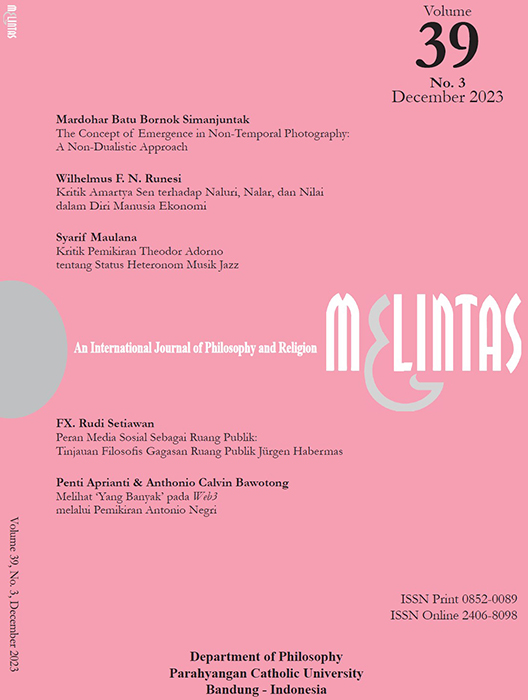Kritik Amartya Sen terhadap Naluri, Nalar, dan Nilai dalam Diri Manusia Ekonomi
DOI:
https://doi.org/10.26593/mel.v39i3.7824Keywords:
economic instinct, passion, social choice, power, homo oeconomicus, reason, valueAbstract
Every action within the economic policy framework must refer to three main principles, namely growth, social balance and sustainability. These three principles have direct political content. In the context of a state, the study of economic problems cannot be separated from its relationship with politics and government. Meanwhile, each leader, whether executive, legislative or judicial, is an individual with a different character. In this article, the author offers an interpretation and analysis of Amartya Sen’s thoughts regarding how reason should stem the urge to lust. Sen believes that every policy will be correct if it has undergone critical rational testing. Problems such as poverty, hunger, injustice and social inequality have not been resolved because policy makers are still trapped in the prison of strong desires. As a result, they tend to make policies that actually worsen poverty conditions. Therefore, through social assistance policies, people are led to no longer question injustice, but to do what the authorities want.
Downloads
Published
Issue
Section
License
Copyright (c) 2024 Wilhelmus F. N. Runesi

This work is licensed under a Creative Commons Attribution-NonCommercial 4.0 International License.
MELINTAS applies the Creative Commons Attribution (CC BY NC) license to articles and other works we publish. If you submit your paper for publication by MELINTAS, you agree to have the CC BY NC license applied to your work.


